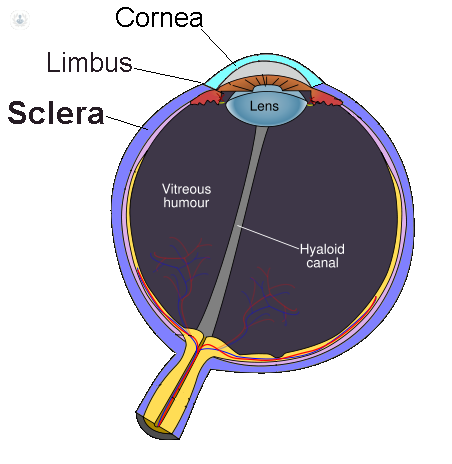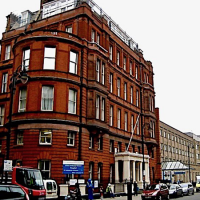Sclerite
What is scleritis?
Scleritis means that the white layer of tissue in your eye (the sclera) has become inflamed. The sclera protects the rest of the eye and extends from the front to the back of the eye.
There are two main types of scleritis:
- Anterior scleritis – where the sclera is inflamed at the front of the eye, where the pupil and lens sit.
- Posterior scleritis – where the sclera is inflamed at the back, where the retina and optic nerve are found.
Scleritis is a rare condition, affecting only around 4 people per 100,000 per year in the UK. It is potentially a very serious condition, and can lead to permanent damage to the eye.
What are the symptoms?
The main symptom of scleritis is redness in the eye. You are unlikely to notice this redness if the back of the eye is inflamed, but if you have anterior scleritis the redness will be readily apparent and you might be able to feel bumps on the eye.
Other symptoms include:
- an aching pain in and around the eye
- blurred vision
- sensitivity to light
Left untreated, scleritis can lead to:
How is it diagnosed?
Scleritis is diagnosed by an ophthalmologist by using a special lamp to shine light into the back of the eye.
Further testing will look at the underlying cause of scleritis, and may involve referral to a rheumatologist.
What causes scleritis?
Scleritis is an inflammatory condition which is often associated with other conditions such as:
In rarer cases, scleritis may be the result of an infection caused by viruses, bacteria or fungi, or even the result of trauma to the eye. Sometimes the cause of the condition is unknown.
How is it treated?
Scleritis is treated depending on the type of scleritis you have.
- Non-necrotising scleritis is treated with non-steriodal anti-inflammatory medication, or oral steroids. Sometimes you might have steroid injections around the eye. If these treatments don’t work you’ll be offered immunosuppressants or biological agents.
- Necrotising scleritis is treated with oral steroids and immunosuppressants.
If scleritis has caused permanent damage to your eye, you might be offered surgery to help restore your eyesight.



